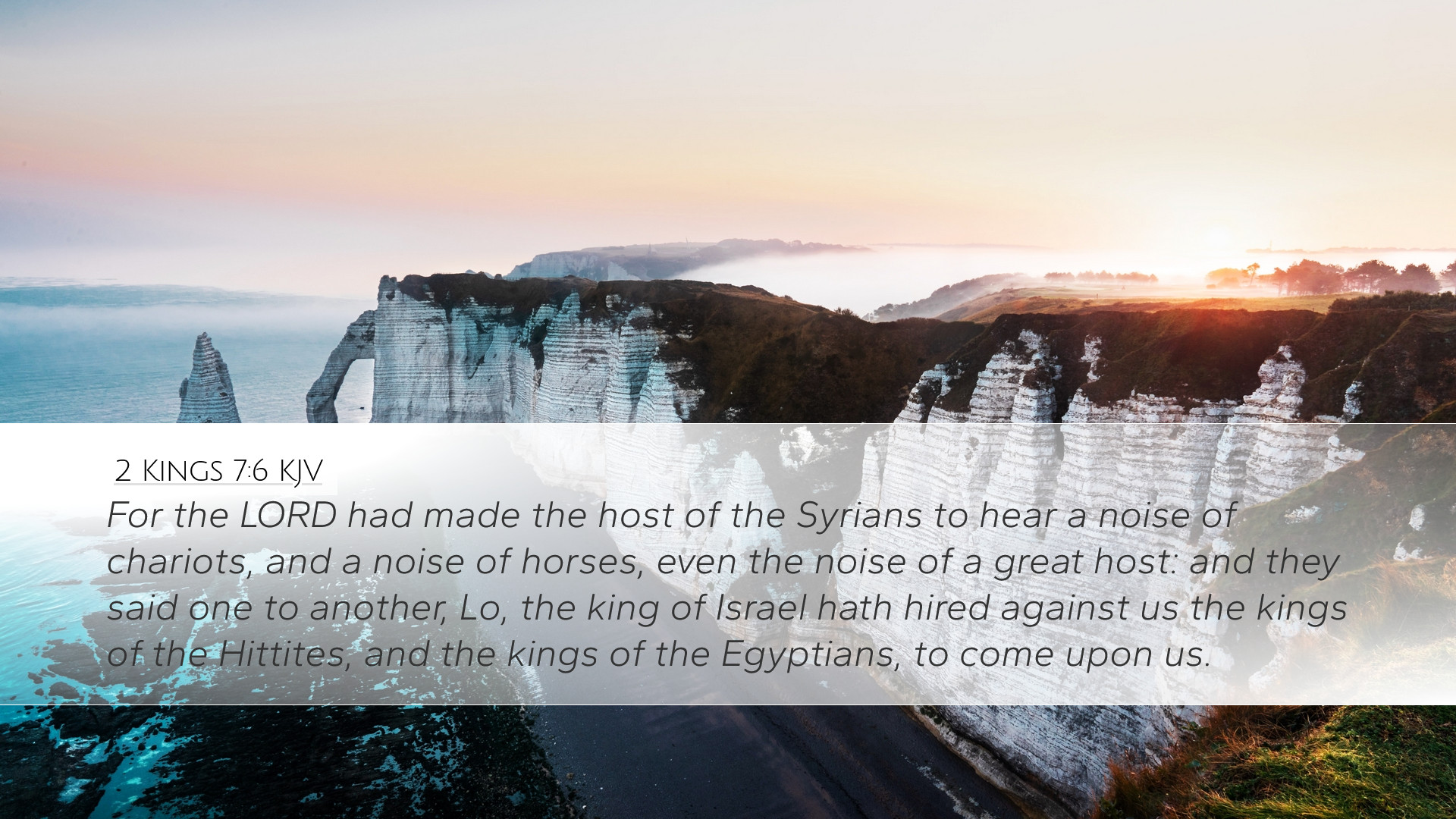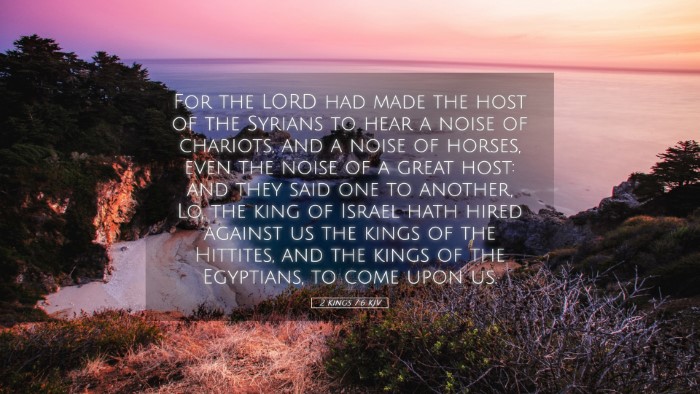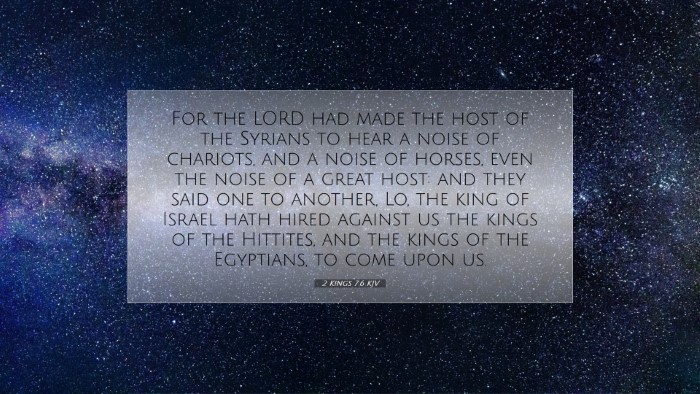Old Testament
Genesis Exodus Leviticus Numbers Deuteronomy Joshua Judges Ruth 1 Samuel 2 Samuel 1 Kings 2 Kings 1 Chronicles 2 Chronicles Ezra Nehemiah Esther Job Psalms Proverbs Ecclesiastes Song of Solomon Isaiah Jeremiah Lamentations Ezekiel Daniel Hosea Joel Amos Obadiah Jonah Micah Nahum Habakkuk Zephaniah Haggai Zechariah Malachi2 Kings 7:6
2 Kings 7:6 KJV
For the LORD had made the host of the Syrians to hear a noise of chariots, and a noise of horses, even the noise of a great host: and they said one to another, Lo, the king of Israel hath hired against us the kings of the Hittites, and the kings of the Egyptians, to come upon us.
2 Kings 7:6 Bible Commentary
Commentary on 2 Kings 7:6
2 Kings 7:6 states: "For the Lord had made the host of the Syrians to hear a noise of chariots, and a noise of horses, even the noise of a great host: and they said one to another, Lo, the king of Israel hath hired against us the kings of the Hittites, and the kings of the Egyptians, to come upon us."
Contextual Overview
This verse is nestled in the narrative of the siege of Samaria by the Syrians. Prior to this moment, the city was experiencing severe famine, and despair among the people had reached critical levels (2 Kings 6:24-30). Elisha had prophesied deliverance, indicating that by the next day, provisions would be plentiful (2 Kings 7:1). This prophecy is fulfilled by God acting in a supernatural manner.
Divine Intervention
-
God's Sovereignty:
Matthew Henry places emphasis on God’s control over circumstances. The noises created by God demonstrated His power, showing that He could turn the situation around unexpectedly. This divine act serves as an illustration of how God can intervene in human affairs, directing events for His purpose.
-
Unexpected Deliverance:
Albert Barnes highlights the improbability of salvation through the means described in the narrative. The Syrian army, despite their numerical superiority, fled in panic, led by the sounds created by God. This teaches that God can use the most unlikely means and moments to bring about salvation and deliverance for His people.
Theological Implications
This passage is rich with theological insight, particularly in understanding God’s character as a deliverer. Adam Clarke asserts that the narrative reflects God's faithfulness to His covenant promises, revealing that even at the point of great despair, God’s plans prevail.
Faith and Trust in God
Elisha’s declaration (2 Kings 7:1) showcases the power of faith. The followers of God are encouraged to trust in His word despite prevailing circumstances. Henry suggests that this moment challenges believers to consider their faith in God's promises, especially when facing dire situations.
Human Response to God's Acts
When faced with miraculous events, the appropriate response is faith and action. The fleeing Syrians illustrate not only the fear and confusion that can arise in the face of the divine but also a reminder for believers to act upon God’s delivered promise. Clarke emphasizes that even when faced with uncertainty, God calls His people to correct action in His light.
Application for Ministry and Scholarship
For pastors and teachers, preaching on this passage can incorporate themes of hope and divine intervention. It serves as a reminder that in times of hopelessness, God is still at work behind the scenes. This scripture encourages a pastoral approach that emphasizes God’s power to transform dire situations through unexpected means.
Encouragement in Times of Crisis
-
Pastoral Care:
Ministers can take comfort in this narrative for counseling those facing crises—reminding them that even in the bleakest circumstances, hope can be realized through faith in God’s promises.
-
Theological Reflection:
Theologians should consider the significance of God’s sovereignty and the means by which He communicates His will. This can lead to robust discussions regarding the nature of divine providence and human expectation of God’s actions.
Conclusion
2 Kings 7:6 serves not only as a historical account but also a profound reminder of God's absolute authority over the affairs of mankind. It teaches that God can instill fear in adversaries, provide for His people, and bring about miraculous deliverance in unexpected ways. For scholars, pastors, and students alike, this passage is an invitation to explore deeper themes of faith, divine intervention, and the hope that should underpin the Christian experience.


